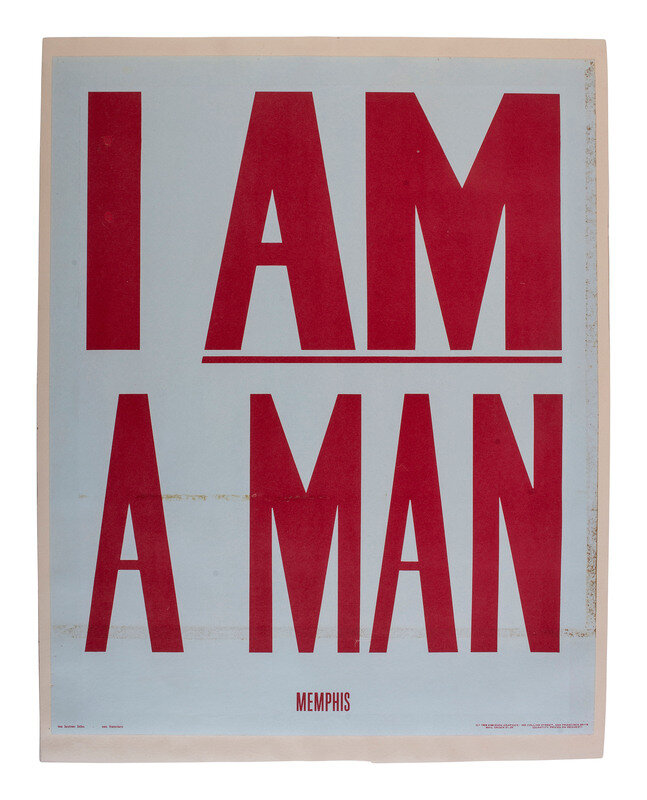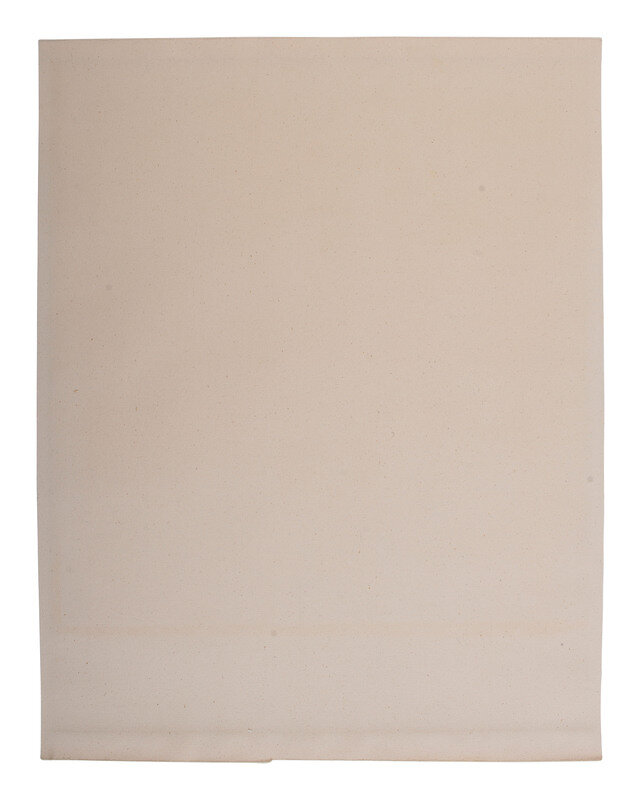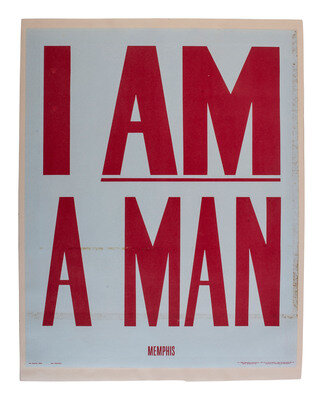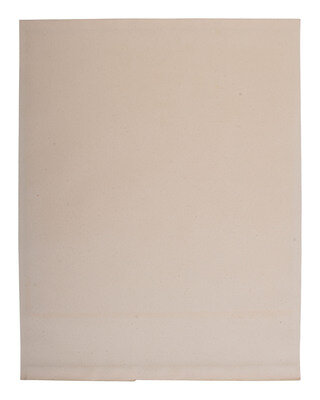[CIVIL RIGHTS]. I Am A Man. San Francisco: Emerson Graphics, 1968.
Sale 1310 - American Historical Ephemera and Photography, Featuring African Americana
Feb 27, 2024
10:00AM ET
Live / Cincinnati
Own a similar item?
Estimate
$1,500 -
2,500
Price Realized
$9,525
Sold prices are inclusive of Buyer’s Premium
Lot Description
[CIVIL RIGHTS]. I Am A Man. San Francisco: Emerson Graphics, 1968.
22 1/8 x 27 7/8 in. printed poster mounted to 23 1/8 x 29 7/8 in. linen-backed cardstock (adhesive discoloration/bleed through, light wear to edges, else good.)
Colossal red bock letters spell out "I Am A Man" with much smaller text centered below reading "Memphis." Lithographer credited to lower left: "tea lautrec litho - san francisco." Copyright information and mail order price to lower right.
The legendary "I Am A Man" poster became a powerful and prominent symbol of the Civil Rights Movement after its use, originally during the Memphis sanitation workers' strike, which continued from February to April of 1968. More than a thousand black sanitation workers in Memphis walked off the job after two of their own were crushed by a garbage truck compactor and the public works department refused compensation to their families. The cause drew the attention and support of Martin Luther King, Jr., who traveled to Memphis to join the strikers as part of his Poor People's Campaign. He gave a speech on 18 March and led a demonstration that grew violent 10 days later. After martial law was imposed, the striking workers continued their march, carrying signs that read "I Am A Man."
Of the slogan, one sanitation worker explained: “We felt we would have to let the city know that because we were sanitation workers, we were human beings. The signs we were carrying said ‘I Am a Man,’ and we were going to demand to have the same dignity and the same courtesy any other citizen of Memphis has.” (BROWN, DeNeen L., "‘I Am a Man’: The ugly Memphis sanitation workers’ strike that led to MLK’s assassination." The Washington Post. 12 February 2018.)
This particular example was designed and printed in 1968, after the originals from the Memphis strike and would have been used during that summer’s Poor People’s Campaign in Washington, D.C.
Colossal red bock letters spell out "I Am A Man" with much smaller text centered below reading "Memphis." Lithographer credited to lower left: "tea lautrec litho - san francisco." Copyright information and mail order price to lower right.
The legendary "I Am A Man" poster became a powerful and prominent symbol of the Civil Rights Movement after its use, originally during the Memphis sanitation workers' strike, which continued from February to April of 1968. More than a thousand black sanitation workers in Memphis walked off the job after two of their own were crushed by a garbage truck compactor and the public works department refused compensation to their families. The cause drew the attention and support of Martin Luther King, Jr., who traveled to Memphis to join the strikers as part of his Poor People's Campaign. He gave a speech on 18 March and led a demonstration that grew violent 10 days later. After martial law was imposed, the striking workers continued their march, carrying signs that read "I Am A Man."
Of the slogan, one sanitation worker explained: “We felt we would have to let the city know that because we were sanitation workers, we were human beings. The signs we were carrying said ‘I Am a Man,’ and we were going to demand to have the same dignity and the same courtesy any other citizen of Memphis has.” (BROWN, DeNeen L., "‘I Am a Man’: The ugly Memphis sanitation workers’ strike that led to MLK’s assassination." The Washington Post. 12 February 2018.)
This particular example was designed and printed in 1968, after the originals from the Memphis strike and would have been used during that summer’s Poor People’s Campaign in Washington, D.C.
This lot is located in Cincinnati.
Condition Report
Auction Specialist



